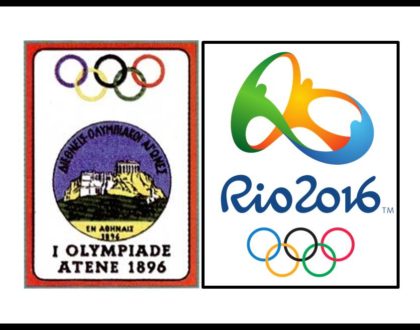The Road to Olympic Diversity

The 2016 Rio de Janeiro Olympic Games, opening today, is an Olympics like no other in the past.
For more than a century, the Olympic Games have been continuously expanding and have now been transformed into an amazing 10+ day event. Dating back to the mid- 1890s, Pierre de Coubertin, the founder of the International Olympic Committee (IOC), wanted to revive a prestigious event for the community. Coubertin had the idea of bring the Olympic Games back to life, which initially took place during 776 B.C. in Olympia, Greece. As explained in the history of the IOC, it took a lot of effort and support for this event to be reborn.
The first of the “revived” Olympic Games was held in 1896 in the city of Athens, Greece. When one compares the original Olympics of 776 B.C., the 1896 Athens Olympics, and the 2016 Rio de Janeiro Games, there are many disparities one can notice – namely in who can participate. Initially, male athletes from Greek cities were the only individuals who participated in the event. During the 1896 Olympics, approximately ten countries were represented and about 250 athletes competed, but still only men.
Married women could not view or participate in the event, however single women had the opportunity to attend.
It was not until 1900 that women were included in the Olympics. Although they were admitted into the Olympic Games as either a spectator or competitor, only about 22 out of 1,000 athletes were women. At the time, many countries still had issues allowing women to represent them. Further, there was a need for expansion to other parts of the world because there was very little diversity present during the early games.
At the time of the 1936 Berlin Summer Olympics Games, many controversial incidences occurred. The IOC made an agreement in 1933 with the German Olympic committee to prohibit any form of discrimination in sports shown in the Olympic Charter. With Adolf Hitler in power at the time, this caused tension. The revised charter was made to provide safety for black athletes. The Nazis had to showcase Germany as a country that welcomed all types of athletes. Surprisingly, black athletes received better treatment in Germany compared to the U.S. Since the 1930s was a time that the Jim Crow laws were in full effect, which prevented blacks from opportunities of upward mobility, the Olympics was actually seen as a safe haven for these black athletes. Jesse Owens, an African- American male sprinter and jumper, was one of the many athletes on the U.S. team who proved to the world their capabilities and paved the way for future Olympians of color. Two African- American women, Louise Stokes and Tidye Pickett, also made a statement by representing the U.S. in the 1936 Berlin Games.
Although the Olympics presented on television this year will not include the Special Olympics, the creation in 1968 of this opportunity for athletes with disabilities was another landmark for inclusion in the Games. The Special Olympics follow a different schedule from their counterpart, but still follow the scheduling format where every four years there is an Olympics held, either winter or summer. The Special Olympics was founded by Eunice Kennedy Shriver, who envisioned that sports can be used as a vehicle to bring many individuals together to share a space and community. It is also a platform to praise individuals for their efforts who may otherwise experience mistreatment. Since then, the event has exponentially increased in participation and support throughout the world.
By the time of the 2012 London Olympic Games, more than 10,500 athletes were competing against one another from 200 countries, and almost 50% of the population of competitors were women. The Olympic Games have come a long way in terms of inclusion, and is now a better platform for celebrating and showcasing the diversity of human talent.
References
www.history.com/this-day-in-history/first-modern-olympic-games
http://registration.olympic.org/en/faq/detail/id/135
www.olympics.mu/history-behind-modern-olympic-games.html
www.olympic.org/ancient-olympic-games/the-athlete
www.topendsports.com/events/summer/firsts.htm
www.ushmm.org/wlc/en/article.php?ModuleId=10007088
www.rd.com/culture/13-olympic-moments-that-changed-history/
www.huffingtonpost.com/entry/berlin-olympics-black-athletes_us_56bb6174e4b0c3c5504f9197
www.topendsports.com/events/summer/women.htm
www.specialolympics.org/Sections/What_We_Do/History_of_Special_Olympics.aspx
